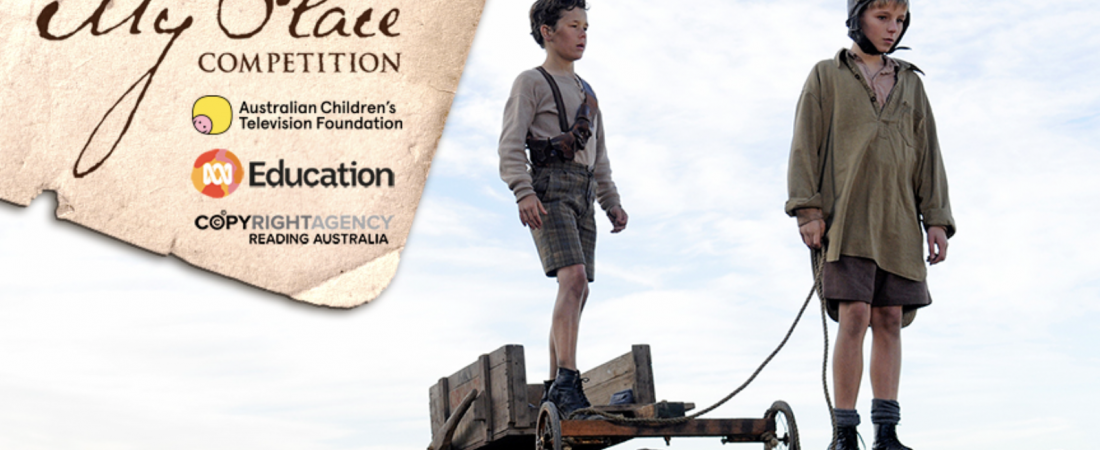2022 My Place Competition
Posted on December 20, 2022
During term 4, our Where we are in place and time inquiry focused on historical perspective and we explored Nadia Wheatley’s My Place book. Our central idea was ‘Recognising bias helps form a balanced understanding of history’. Students were invited to write their own My Place page for a national competition by the Australian Children’s Television Foundation.
Eleanor Reid won third prize for her stunning piece (see below).
By Eleanor Reid (Year 5)
Hello, my name is Ellie and this feels like my place.
I live in Battery Point with my parents, two siblings, two chickens and our dog and cat. Our main room is half glass, so you can see everything from the waves and toylike boats on the river, to the soft blossoms of the magnolia tree that reveals itself on my eldest sibling’s birthday. At night the lights from the houses splatter the hills and reflect onto the smooth, glassy night water, making it hard to tell stars from houses.
Right now, I pull my checkered coat around me close, and my eyes rove the ground for treasure; a coin, a rusty bottle cap, a forgotten necklace. My parents call me a magpie.
I’m walking down the path that I have run, chased, stomped on, so many times before. I know these streets as well as the workers from the old shipyards would have done. The floral lane is my favourite part of the route to the beach where the footpath is surrounded on one side by a short bush of deep pink blossoms, spring smelling daffodils, a kind of slimy sappy shrub with long leaves and fragrant rose bushes of every kind.
The pavement looks like a patchwork of different types of stone, concrete and manholes, matched together in a sort of roughly walkable surface. The stubby garden walls on either side are crammed with sandstone bricks worn from years of age. The pavement is littered with the petals of blossoms and leaves of trees, blanketing the ground; a clear reminder of spring, finally spring.
Throughout the floral lane, there are a couple small sandstone stairs that runs over to the other side of the road, and that take you down the slippery concrete hill, which then leads over to the beach. I have to grab onto a side rail that follows the path, and swing myself into the tiny alley to avoid slipping down, which I once did and my knees had prickly scabs for days.
This beach is not for swimming. This beach is not for surfing, sun baking or sandcastles. This beach, from the dirty, muddy sand, to the winds that whip the dark water into frothy white horses that prance over the surface, from the old forgotten boats that lie here, is for exploring. It is for finding your way through the maze of rusty boats and crumbling wooden huts and water that is as cold as the winds that buffet your frosty face.
The sand is filthy, from a century of muck, and the water, washing into the bays, eating away the cliffs, throwing around the boats, is only a bit less so. It flows from the River Derwent. Its water is mixed with the toxins and oil from the zinc works that have come from two centuries of metal industries upstream. But it’s still fiercely beautiful. The water still turns all manner of breathtaking shades of blue. Rubbish is not common, and I wish it could be like that everywhere, but we’ll work towards it.
I run my fingers through the icy water, coldness shooting up my fingertips.
Boats still sail around the water. This place used to be a busy rushing suburb, full of workers and ship yards, where people used to dump their rubbish. People don’t do that anymore. They haven’t in a long time. The huge dip in the ground up the hill from the water is beautiful to me, the two steep slopes on either side are full of rich, fresh, slippery and dewy grass as long as a my head, sprinkled with flowers in spring, and in the middle a giant sheet of metal with huge numbers indented in them.
I kneel, examining the dark sand, and flick over a couple shards of white pottery, left over from those rubbish dumps and lunches of the workers that worked here. Pieces of glass, seaweed, pottery and bricks lie in rows along the waterline of the beach, a perfect place for searching for treasure. I run my hands across sand until I find a shard of sea glass, rounded with age after years of being tossed through the rough waves.
I stand, and tuck my treasure into my coat. I promise to the harsh wind and frothing tide, “I promise, one day we can fix this. We will clean your water, mend your hills.” The breeze whispers a silent word, then I turn and head back up the path.
